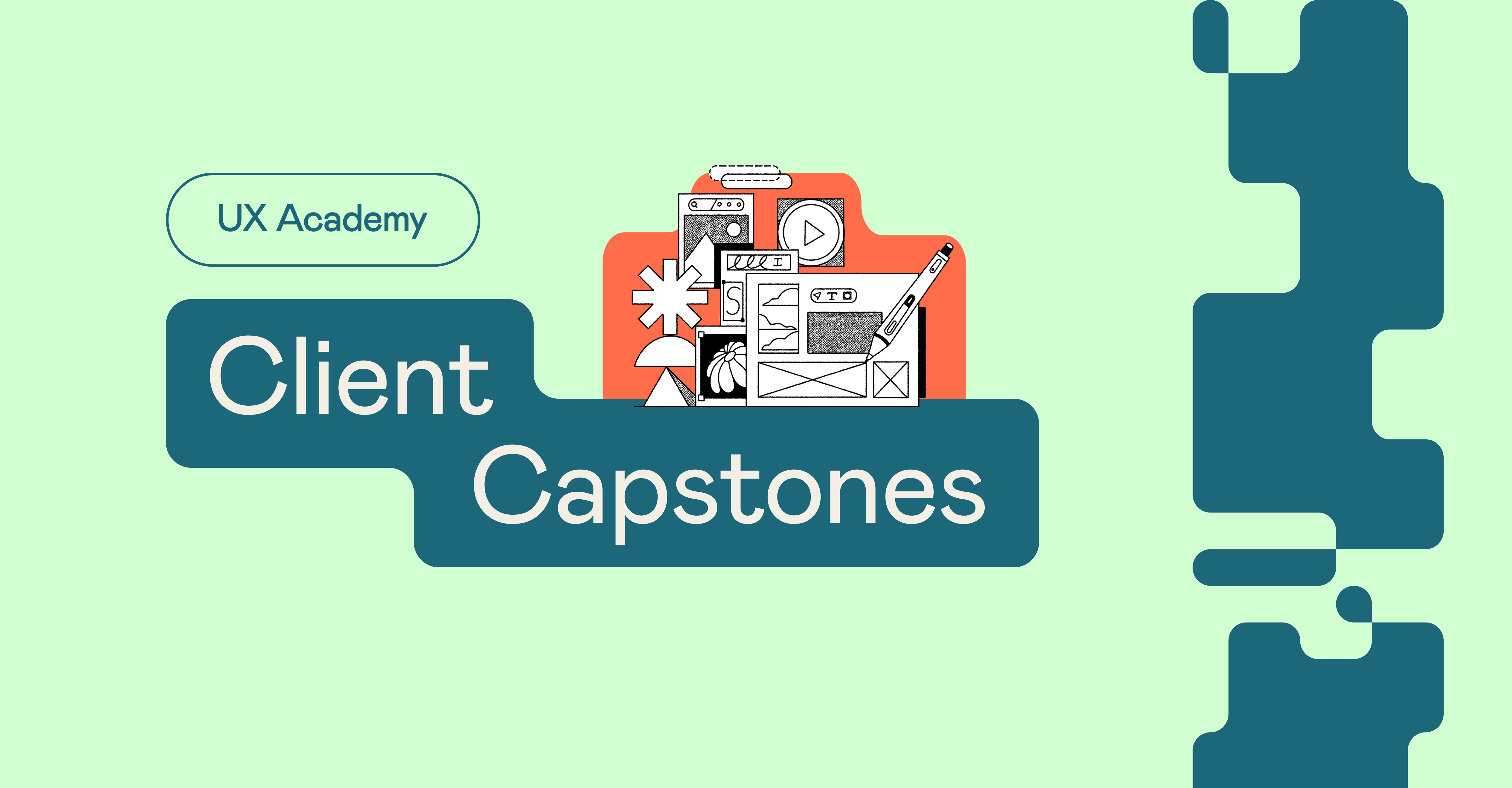Thinking about a career in design but not sure if it’s the right fit? Worried you don’t have the art school background or Photoshop chops? Fear not! The truth is, there’s no one-size-fits-all solution for becoming a designer—no two designers are alike in experience, career path, interest, or skill set.
And yet, there are some universally agreed upon qualities that make a great designer. Try this self-evaluation to explore whether a career in design might be the next step for you. Focus on what sounds true to you, and take it from there. You might be a good designer if…
1. You instinctively identify opportunities to improve a user experience.
You notice things like how functional an electric kettle is, but how ugly. When you see a line snaking all the way out of a restaurant door and down the block, you intuitively sense that there has to be a better way and start to brainstorm ways to fix it. On websites, you notice when things are uncentered, or when a font is too cursive to be legible. You find yourself quickly skipping over webpages with low contrast between typeface and background. You notice all these slight disturbances with a discerning eye, and can name a quick solution to improve all of them.

2. You can put yourself in others’ shoes.
It’s every designer’s dream to design a product for themselves, but the truth is, most designers work on products for other people. A good designer cares about people (about how they work and play today), and about how their designs will fit into people’s lives. Understanding people’s habits and needs helps inform their designs.

3. You like a good balance between collaborative work and solo time.
Most would-be designers assume that a designer’s time is spent designing. This is true, but only in part! A designer must also dedicate time to gathering requirements, talking to users, talking to internal stakeholders, and reviewing and sharing their work in progress on a regular basis. A good designer must be able to readily switch from brainstorming solutions as a team to hammering away at a problem on her own, and ideally enjoy that variety, too.
4. You’re not afraid to explain why something works.
A designer’s job doesn’t stop when a design is finished. Oftentimes, that’s only just the beginning! Designers are tasked with defending their designs on a regular basis. If you’re naturally good at articulating your thought process, this is a great asset for explaining why you’ve designed things the way you did. If this is a skill not yet in your toolbox, fear not: every designer necessarily has ample opportunity to improve this skill over the course of his or her career.
5. You’re not afraid to have your work critiqued.
Whether you are a student or a full-time employee, “crit” is a big part of the design process. A designer’s work has many audiences, and each audience will have its own set of feedback on your work. Whether they are users purchasing or using the product they are designing, cross-functional teammates whose requirements impact the evolution of the product they are designing, and fellow designers (internal to the company and external to it), those opinions matter, and you will hear them. When it comes to critique, design is not for the faint of heart. View it as an opportunity to improve rather than a stamp of failure and you’ll be in good shape.

6. You’re not afraid to start over.
The best designers are able to divorce themselves from their work and start over as necessary. You will learn from your mistakes (and there will be plenty), from internal feedback, from customer usage, from your CEO’s visual preferences… and sometimes start over. Having the ability to recognize when a minor tweak will do and when a major redesign is necessary is a major advantage in getting great designs out the door.
Sound like you? Well then, it’s time to get started. A future in design just might be for you.
Further Resources
- How to Become a Designer at Any Stage of Your Career
- How to Ace Your Portfolio Presentation
- Hello Designer: A Toolkit for Aspiring Product Designers
Ximena Vengoechea is a design researcher, writer, and illustrator whose work on personal and professional development has been published in Inc, Newsweek, and Fast Company. She currently works at Twitter. Follow her on Twitter and Medium.



.svg)














